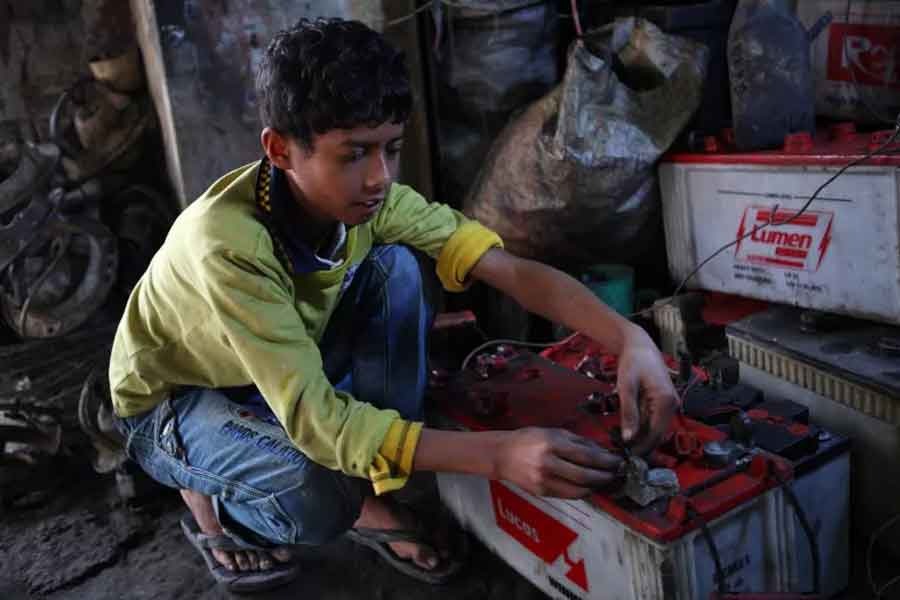
Published :
Updated :

Dhaka is adjudged one of the most polluted cities in the world in various international rankings. Due to high percentage of carbon compounds, lead and various particulate objects, air pollution in the city have reached such an alarming level that increasing number of people, especially children, are developing asthma and other respiratory diseases. A recent study conducted by icddr,b and Stanford University lends credence to the city's deteriorating level of air pollution its severe cost.
The joint study on 500 slum children aged two to four years in the city has found that around 98 per cent of them have concerning levels of this toxic heavy metal in their blood. In Dhaka South, where lead-emitting industries are concentrated, the situation is even worse. Every single child in the study carried lead in their blood in Dhaka South, a shocking indication of how unavoidable this poison has become in our environment.
Lead is a toxic heavy metal that occurs naturally in soil and minerals. But because of human industrial activity, it is now found in food, water, air, toys, cosmetics, cooking utensils and even household dust. Common sources of exposure include battery-related industries, lead-based paints and cosmetics, and contaminated consumer goods. Lead can enter the body through breathing, eating or skin contact.
The World Health Organization warns that children are especially vulnerable as their bodies absorb four to five times more lead than adults. Their natural curiosity, hand-to-mouth behaviour, and tendency to put objects in their mouths make them far more likely to ingest lead-contaminated dust, soil and paint.
According to the US Centers for Disease Control and Prevention (CDC), lead exposure can seriously harm a child's growth and development, causing damage to the brain and nervous system, learning and behavioural issues, hearing and speech problems, lower IQ, and decreased attention levels, among other conditions. The CDC considers blood lead levels (BLLs) above 3.5 micrograms per decilitre to be concerning, especially for babies, while WHO maintains that there is no safe level. The study on Dhaka's children found 6.7 micrograms of lead per decilitre of blood, far exceeding tolerable limits.
Lead pollution is getting worse mainly because the number of battery-powered rickshaws is increasing. These rickshaws use lead-acid batteries, which contain large amounts of toxic lead. When these batteries reach the end of their lifespan, they need to be disposed of or recycled. The problem is that in many cases, this disposal process is unsafe and unregulated. People often open the batteries to extract and reuse the lead, or melt it down for other purposes, without proper protective measures. This releases lead particles into the air, soil, and water, contaminating the environment and posing serious health risks - especially to children living nearby. Lead also ends up in the soil, water, and directly in the environment. Experts warn that while carbon emissions from burning oil or gas are dangerous, lead contamination poses a far greater long-term threat.
The government must urgently develop a comprehensive plan to eliminate all sources of lead exposure, not only in Dhaka but across the country. This includes relocating lead-polluting industries away from residential areas, strictly regulating informal battery recycling, enforcing safety standards, and phasing out lead in consumer products. Public awareness campaigns must highlight the dangers, and children must be protected from working in high-risk factories.
Lead poisoning is not only robbing children of their health, intelligence, and potential, it's also stealing the future of the entire nation. The authorities, therefore, should take all necessary measures to safeguard our children's well-being and ensure they grow up healthy and empowered to contribute meaningfully to the nation's progress.


 For all latest news, follow The Financial Express Google News channel.
For all latest news, follow The Financial Express Google News channel.